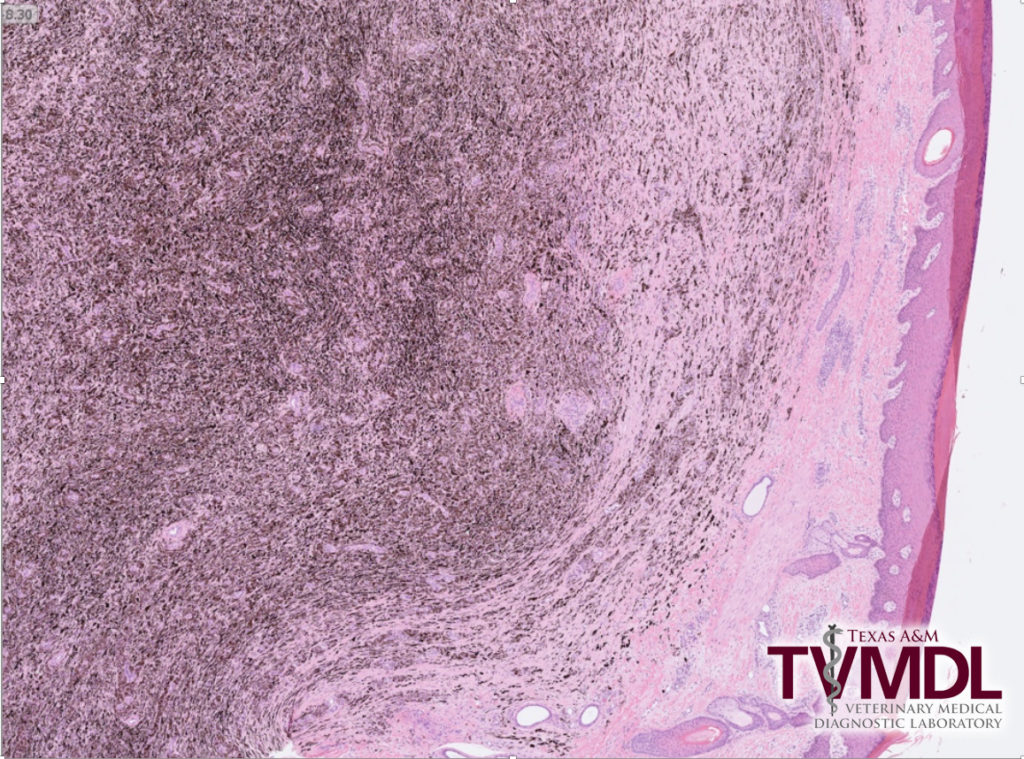Melanocytic Tumors in Cattle
By Will Sims, DVM
A biopsy from a 7-month-old cross breed bovine steer with a large mass was submitted to the Texas A&M Veterinary Medical Diagnostic Laboratory (TVMDL) in Amarillo. The mass had been surgically removed from the right cervical region just in front of the shoulder. The mass had dimensions of 8-10 inches in diameter, very firm and heavy. Grossly on cross-section of the tissue, it was black and oily. Histologically, the mass was composed of a proliferation of spindle to round shaped cells frequently containing abundant black glandular pigment (Figure 1). Based on the cellular morphology, it was diagnosed as bovine melanocytoma. Melanocytic tumors are common in all species of domesticated livestock and companion animals. Of bovine neoplasms, dermal melanocytic tumors make up 5-6% of tumors. Most cattle that are affected have red, black or grey hair coats. Unlike companion animals where these tumors tend to occur in older animals, bovine melanocytic tumors tend to occur in younger animals. These tumors are most often benign, thus classifying it as a melanocytoma rather than a malignant melanoma. Despite this, there are rare reports of locally invasive tumors as well as metastasis to distant sites.

Figure 1. Photomicrograph depicting a proliferation of spindle to round shaped cells containing abundant black glandular pigment.
For more information about this case, contact Dr. Will Sims, veterinary pathologist at TVMDL Amarillo. To learn more about TVMDL’s testing services visit tvmdl.tamu.edu, call 1.888.646.5624 for TVMDL Amarillo or 1.888.646.5623 for TVMDL College Station.